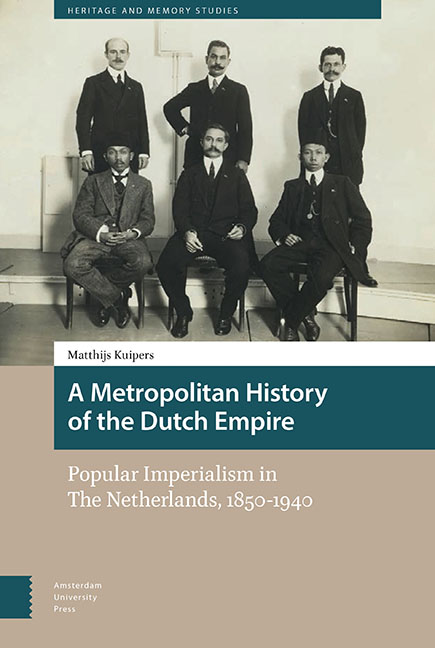
- Publisher:
- Amsterdam University Press
- Online publication date:
- May 2022
- Print publication year:
- 2022
- Online ISBN:
- 9789048550241
- Subjects:
- Social Psychology, Psychology
- Series:
- Heritage and Memory Studies

This book analyses popular imperial culture in the Netherlands around the turn of the twentieth century. Despite the prominent role that the Dutch empire played in many (sometimes unexpected) aspects of civil society, and its significance in mobilising citizens to participate in causes both directly and indirectly related to the overseas colonies, most people seem to have remained indifferent towards imperial affairs. How, then, barring a few jingoist outbursts during the Aceh and Boer Wars, could the empire be simultaneously present and absent in metropolitan life?
Drawing upon the works of scholars from fields as diverse as postcolonial studies and Habsburg imperialism, A Metropolitan History of the Dutch Empire argues that indifference was not an anomaly in the face of an all-permeating imperial culture, but rather the logical consequence of an imperial ideology that treated 'the metropole' and 'the colony' as entirely separate entities. The various groups and individuals who advocated for imperial or anti-imperial causes - such as missionaries, former colonials, Indonesian students, and boy scouts - had little unmediated contact with one another, and maintained their own distinctive modes of expression. The author concludes that we should not assume that the metropolitan invisibility of colonial culture rendered it powerless.
 Loading metrics...
Loading metrics...
* Views captured on Cambridge Core between #date#. This data will be updated every 24 hours.
Usage data cannot currently be displayed.